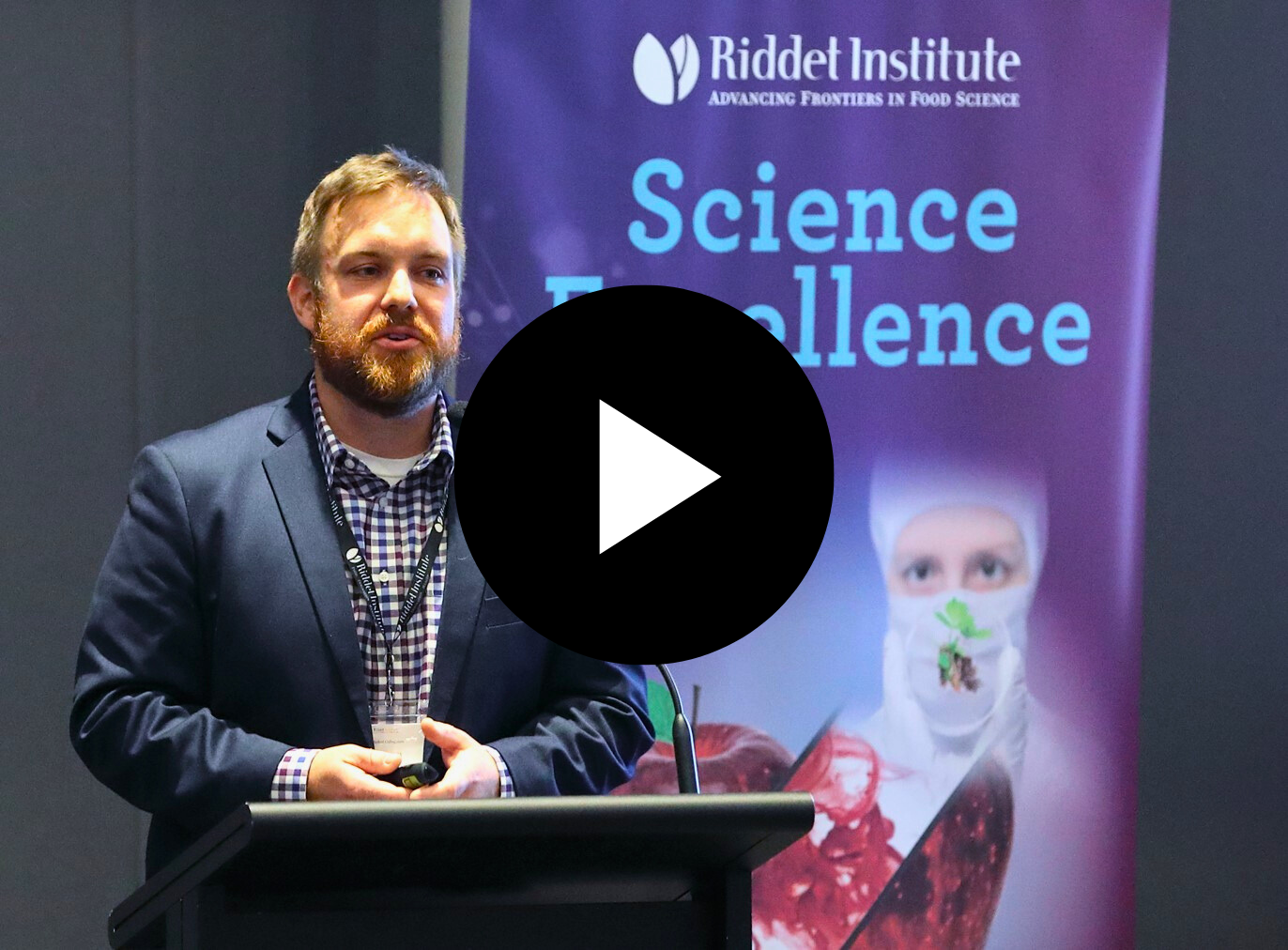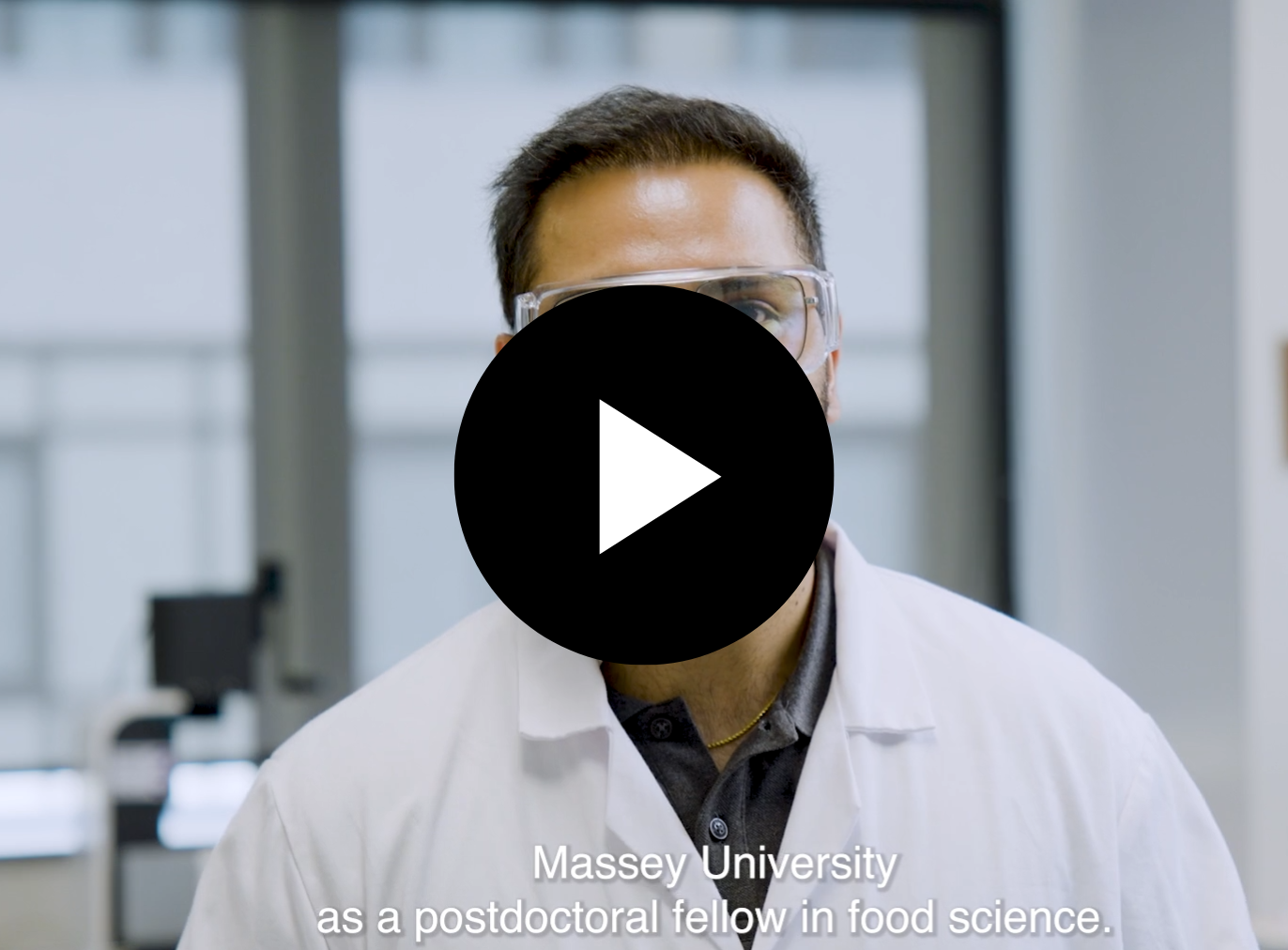Student Stories
Why do your PhD with the Riddet Institute?
Studying with the Riddet Institute prepares our students for careers in industry and academia globally. As a student here, there are many opportunities to present your research at conferences, enter international competitions, gain practical experience, and network with experts across food science and technology. The Riddet Institute fosters an encouraging environment to grow as a researcher while you pursue your projects.
The Riddet Institute Student Society (RISS) is a student association that organises events, workshops, and social gatherings to make your time at the Institute better. They also coordinate a buddy system to support new students arriving at the Institute and ensure their transition to student life here goes smoothly.
What does it mean to be a Riddet Institute PhD Student?
Hear from some of our recent graduates:
-
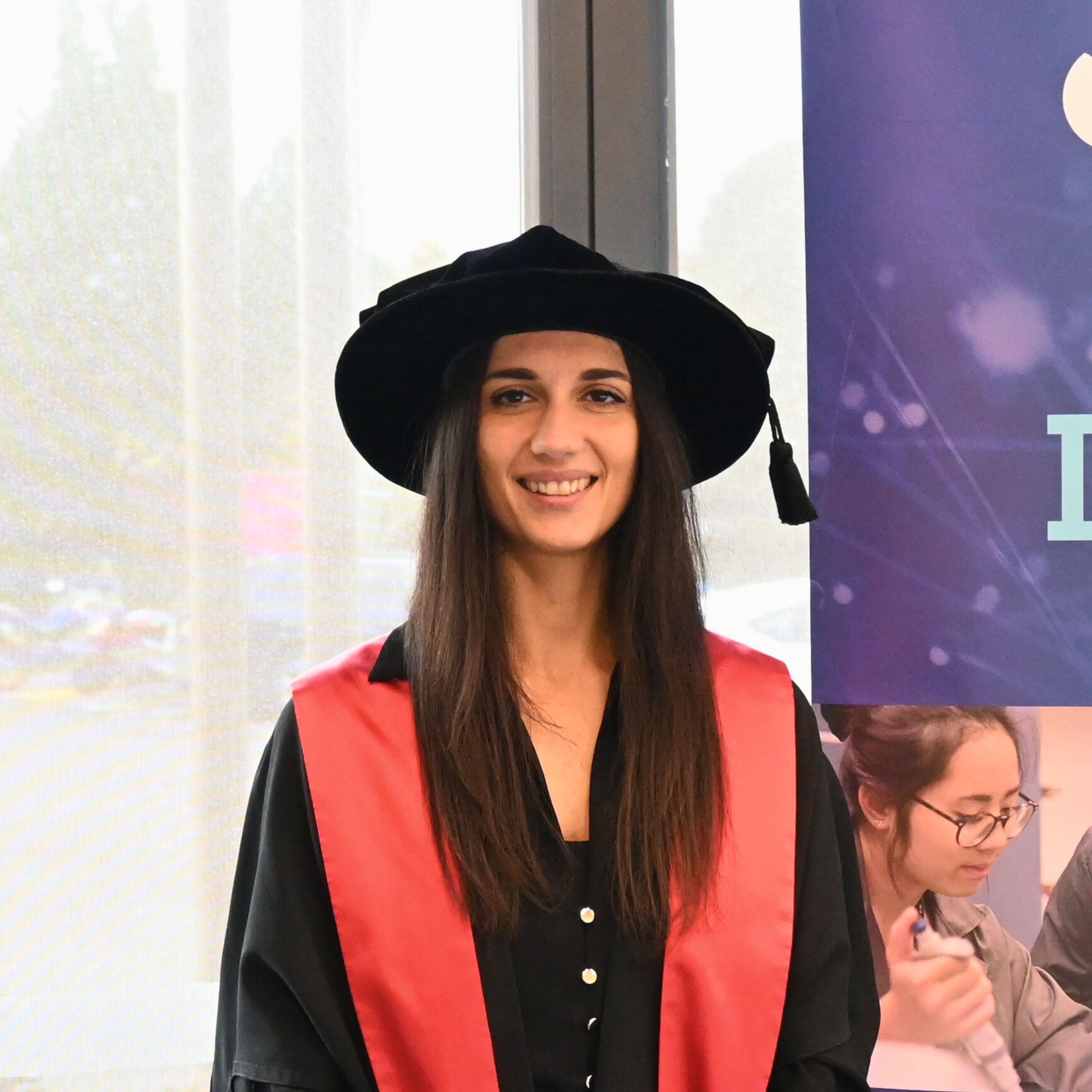
Dr Caterina Carco
Postdoctoral Fellow in Bioinformatics, Malaghan Institute of Medical Research (New Zealand)Dr Caterina Carco's research interests and prior study in medical biotechnology and molecular medicine led her to the Riddet Institute, where she pursued a PhD focused on the microbiome-immune system interactions in functional gastrointestinal disorders (FGIDs). Caterina’s research explored the relationship between gut microbiota, immune cell function, and gastrointestinal symptoms, revealing potential food-based interventions, such as kiwifruit, to support gut health. After completing her PhD, Caterina moved into bioinformatics as a Postdoctoral Fellow at the Malaghan Institute, focusing on immune responses in the skin and gut. Her long-term aspirations include advancing research on colorectal cancer prevention and exploring the impact of food contaminants on health. Caterina’s work has earned recognition, including Best Poster at Foodomics 2019.
-

Dr Alexander Kanon
Research Officer (Industry Project Manager), APC Microbiome (Ireland)Dr Alex Kanon’s journey to the Riddet Institute was driven by a curiosity about how nutrition impacts human health. After earning a bachelor’s degree in food science and nutrition, he pursued an honours degree in physiology, focusing on preterm infant nutrition and brain development, both from the University of Queensland. He began his career at CSIRO, where he developed expertise in protein research and food functionality. At the Riddet Institute, his PhD research delved into the effect of kiwifruit on sleep, neurotransmitter metabolism, and the gut microbiome, shedding light on the gut-brain connection. Currently, as Industry Project Manager at APC Microbiome, University College Cork, Ireland, Alex leads microbiota-gut-brain axis projects for global clients, driving innovation and impactful collaborations.
-
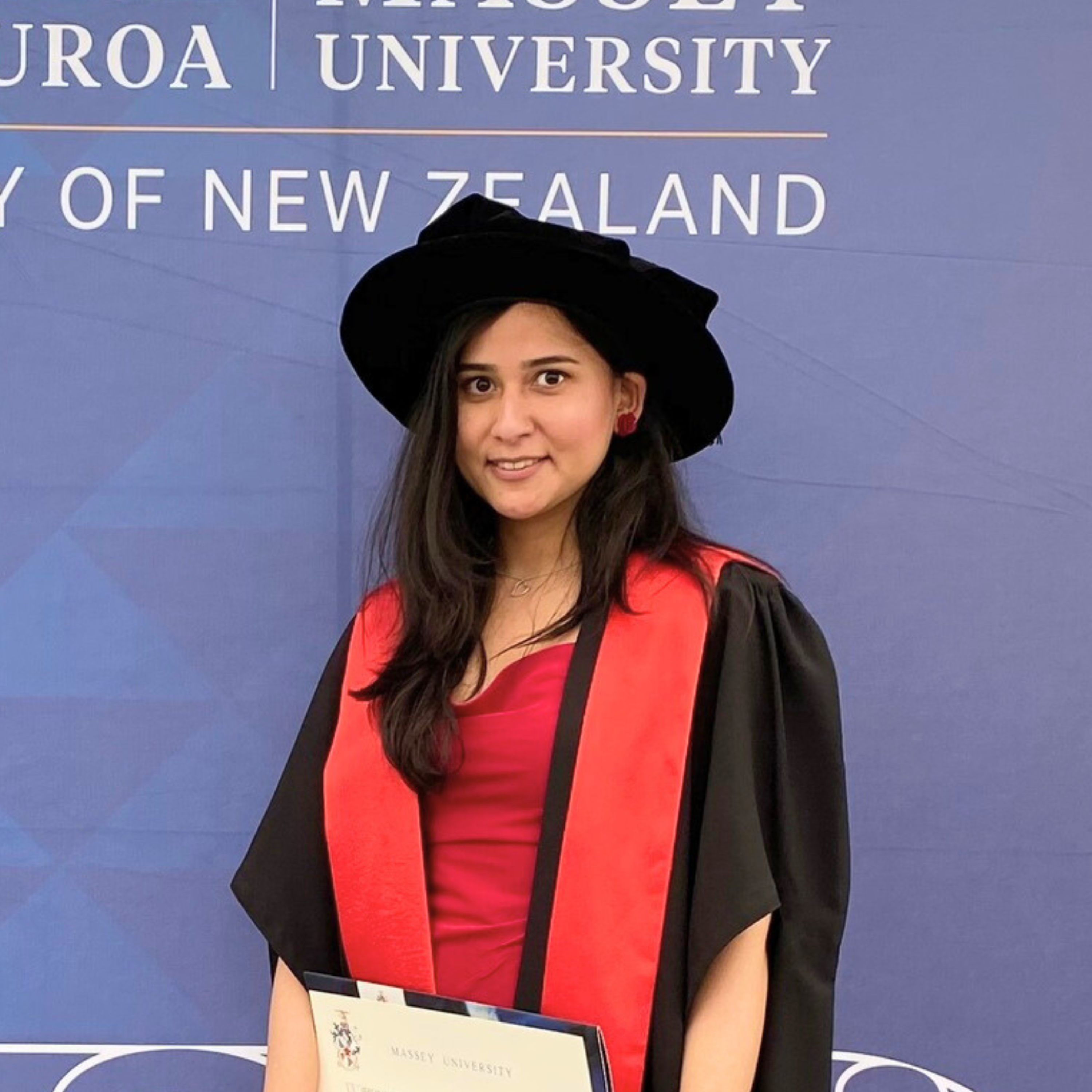
Dr Ankita Jena
Research Scientist, Fonterra (New Zealand)Dr Ankita Jena’s PhD research looked into ruminants’ milk in early postnatal brain development in a pig model of the human infant. Ankita graduated in 2023, and found her experience at the Riddet Institute enriching. One of her highlights was interacting with other PhD students and scientists from diverse nationalities and cultural backgrounds. Ankita found the national and international collaboration opportunities invaluable and strengthened her research abilities. Ankita is now working as a Research Scientist at the Fonterra Research and Development Centre. In this role, she delves into the intricate relationship between dairy products and health through computational biology. The role allows Ankita to apply the knowledge and expertise from her PhD at the Riddet Institute to real-world problems.
-
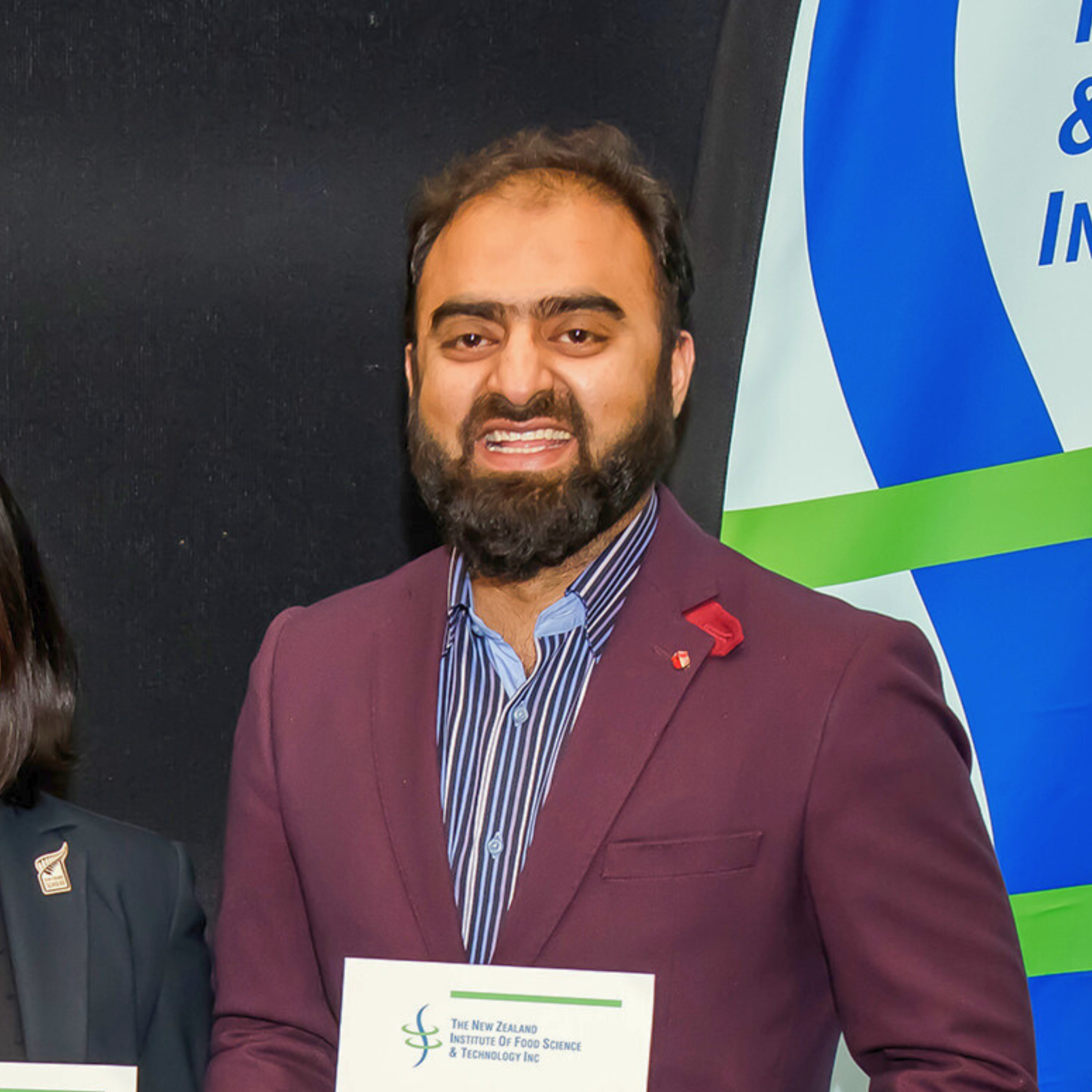
Dr Haroon Jamshaid Qazi
Lecturer, Department of Food Science and Human Nutrition, University of Veterinary and Animal Sciences (Pakistan)Dr Haroon Jamshaid Qazi’s PhD focused on understanding different food structure modifications in the gastrointestinal environment and their impact on the delivery of encapsulated lipophilic bioactive compounds. Haroon observed that the supportive culture in the Riddet Institute has not only fostered collaboration but also facilitated personal growth and development. Currently, Haroon serves as a Lecturer at the Department of Food Science and Human Nutrition at the University of Veterinary and Animal Sciences, Pakistan. In this role, he is engaged in lecturing and mentoring undergraduate and postgraduate students in the areas of food and nutritional sciences. Leveraging his doctoral expertise, he actively contributes to the enhancement of departmental facilities, aspiring to integrate cutting-edge techniques and methodologies acquired during his PhD.
-
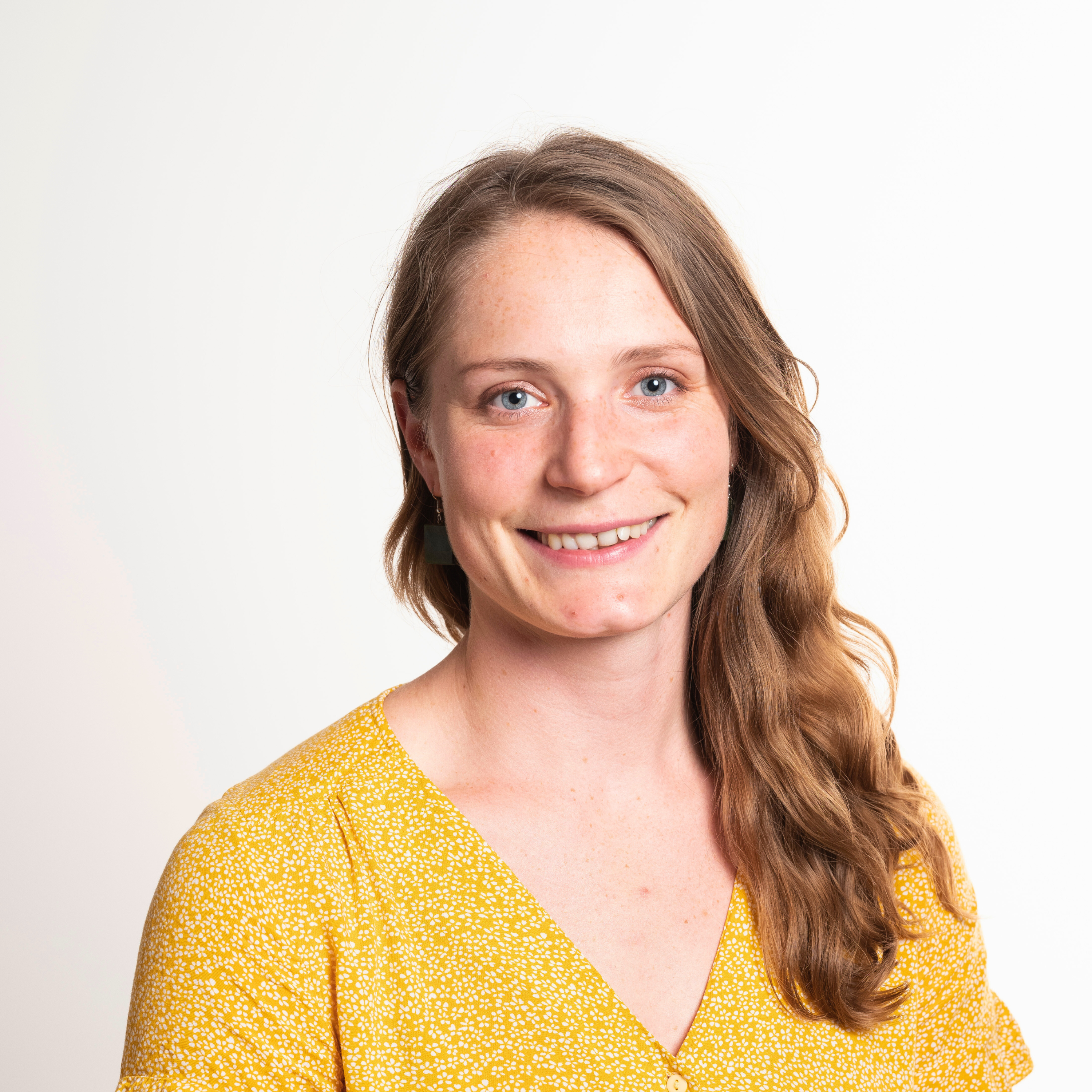
Dr Laura Payling
Animal Science Lead, Biofractal (Portugal)Dr Laura Payling’s PhD explored the links between human breath methane, dietary fibre digestion, and the gut microbiota. Laura was president of the Riddet Institute student society, which exposed her to leadership opportunities and developed skills outside of research that have helped with her career progression. She chose to do her studies at the Riddet Institute based on its reputation for interesting research and the varied career paths of its graduates into both academia and industry. Since finishing her study, Laura has moved to Portugal and joined the animal science division for an innovative startup, Biofractal, which uses complex biological data, advanced data science, and digital technology to improve animal health and sustainability outcomes. The skills she gained while at the Riddet Institute, particularly working with systems, have transferred to her new role where she connects science, animal science applications, and people.
-
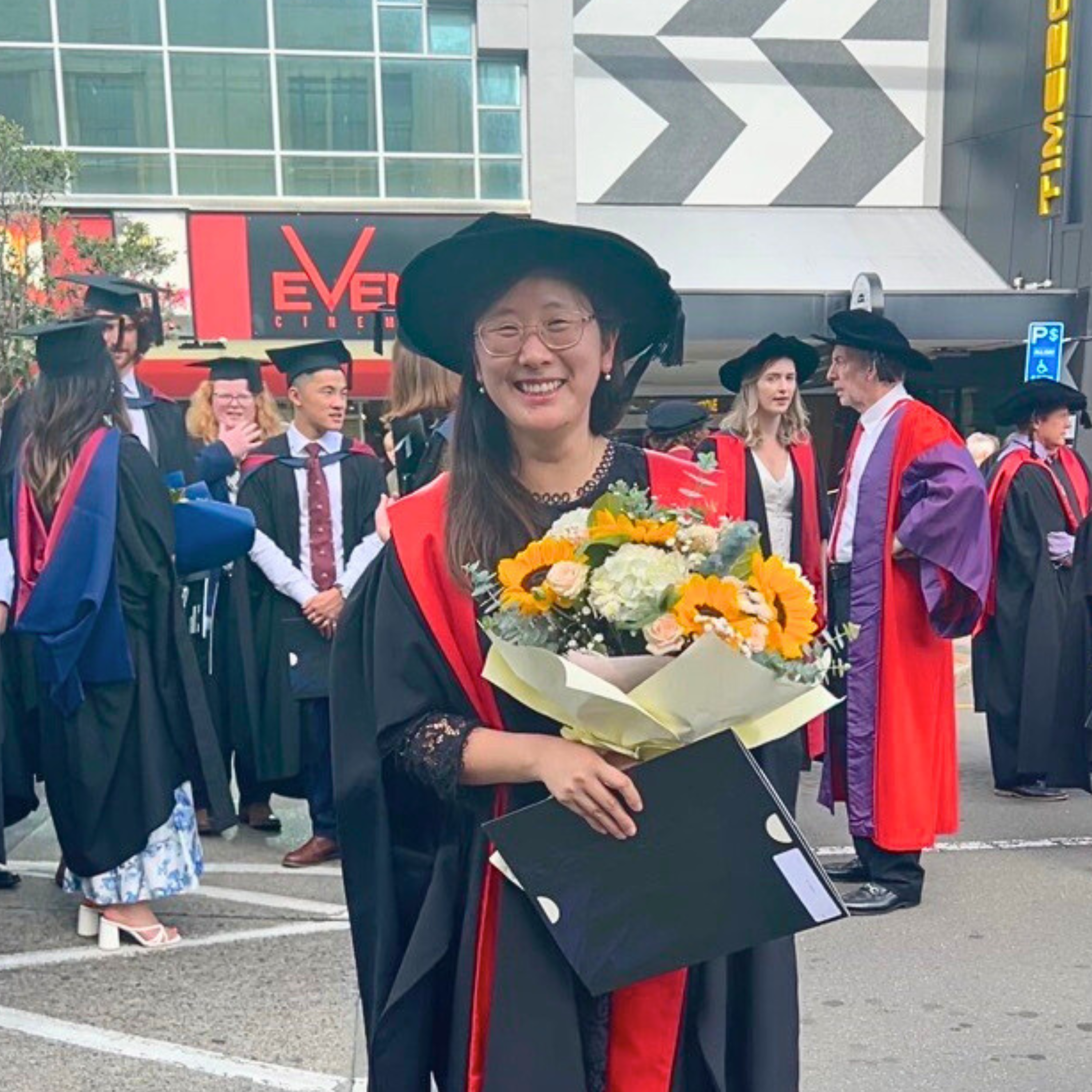
Dr Xin Wang
Research Scientist, Fonterra (New Zealand)Dr Xin Wang’s PhD focused on the digestive behaviour of non-dairy milk alternatives. Following graduation, Xin joined the Fonterra Research and Development Centre, where she continues to utilise her expertise in projects related to UHT cream and other relevant developments. Xin’s time at the Riddet Institute proved to be immensely valuable, shaping her academic journey and establishing the groundwork for her current position. She holds cherished memories of her experience at the Institute, where she refined her research skills and gained a comprehensive understanding of the intricacies of food science. One of Xin’s highlights of studying at the Riddet Institute was her encouraging and supportive supervisors. Their mentorship provided Xin with the valuable guidance and constructive feedback she needed to navigate her research projects and academic challenges, building the skills she now utilises in her role as a research scientist.
-

Dr Nan Luo
Technologist, Synlait (New Zealand)Dr Nan Luo enjoyed the discipline of her PhD in systematically solving a scientific problem when working on her thesis on structured emulsion gel systems. But her interest was also drawn to the potential applications of research. After she completed her PhD, it was a logical step to choose a career in industry. She is now a Technologist at milk nutrition company Synlait, working in its Research and Development Centre. In her role, she aims to improve product quality through process innovation for applications in mainly liquid products. Reflecting on her time at the Riddet Institute, Nan says she learned a lot of skills beyond her PhD, including the importance of critical thinking, self-organisation, and communication. She really appreciates the freedom she had to pursue her own research ideas, and the very supportive and welcoming culture at the Institute, especially amongst the student cohort.

